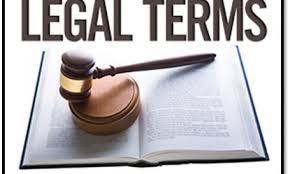Divorce mediation is a process where a neutral third party, the mediator, assists divorcing couples in reaching an agreement on various aspects of their divorce. Proper preparation can make the mediation process smoother and more productive. Here’s a comprehensive checklist to help you prepare for divorce mediation, followed by a resource that might offer an alternative path to consider.

1. Understand the Mediation Process
- Familiarize yourself with how mediation works.
- Research the role of the mediator.
- Recognize that the mediator is neutral and won’t take sides.
2. Gather Financial Documents
- Recent tax returns.
- Bank statements (checking, savings, and investment accounts).
- Retirement account statements.
- Mortgage and other loan statements.
- Credit card statements.
- List of assets and their estimated values.
- List of debts and liabilities.
3. Identify Key Issues
- Child custody and visitation schedules.
- Child support.
- Spousal support or alimony.
- Property and asset division.
- Division of debts.
4. Set Clear Objectives
- Understand what you want to achieve from the mediation.
- Prioritize your most important concerns.
- Be open to compromise.
5. Prepare Emotionally
- Consider seeking counseling or therapy to cope with the emotional aspects of divorce.
- Approach mediation with an open mind and a willingness to listen.
- Avoid using the session as a platform for blame or resentment.
6. Understand Your Rights
- Familiarize yourself with state-specific divorce laws.
- Consider consulting with an attorney before mediation to understand your rights and potential outcomes if the case goes to court.
7. Create a Proposed Parenting Plan (if applicable)
- Outline desired custody arrangements.
- Propose holiday and vacation schedules.
- Address any specific concerns related to parenting.
8. Consider Future Needs
- Think about future expenses, especially if children are involved (e.g., education, medical needs).
- Plan for retirement and long-term financial stability.
9. Stay Organized
- Keep all documents in an organized folder or binder.
- Make a list of questions or concerns to address during the session.
10. Be Open to Professional Guidance
- Consider hiring professionals, such as financial advisors, to provide clarity on specific issues.
- Be open to recommendations from the mediator.
Considering Reconciliation
Before diving deep into the mediation process, it’s worth reflecting on the relationship’s potential for reconciliation. Could external guidance and tools help navigate the challenges and possibly rekindle the bond? This resource offers comprehensive tools and advice for couples pondering this path.
Divorce mediation can be a constructive way to navigate the complexities of divorce. Being well-prepared can make the process more efficient and lead to more amicable agreements. However, always consider all avenues, including potential reconciliation, before making final decisions. If you’re at this challenging crossroads and seek guidance, this platform provides a holistic approach to support couples in their journey.
As an Amazon Associate we earn from qualifying purchases through some links in our articles.




